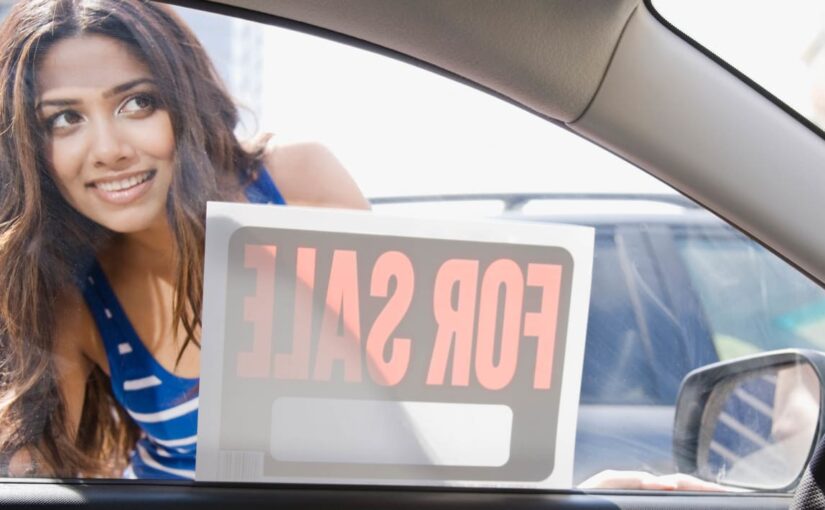
Let’s say you hold a used car from a dealership and later want to bring it back for a refund. Do you have the legal right to get your money back in any case of the reason? Does the “Three-Day Cooling Off Period” apply?
That’s what “Mack” thought.
‘I Looked Under the Seats and Found Drug Bits and pieces!’
“I bought a used SUV two days ago and want to take it back to the dealer for a refund, but when I told them why they laughed at me and refused,” Mack told me in a call just.
When I questioned if there was no matter what thing involuntarily incorrect with the vehicle, he answered, “No, it drives fine, but it is what I found under the front seats that scares me: shifty drug bits and pieces.” His tone of voice grew increasingly loud the longer we spoke.
And what was he looking for under the front seats?
“For money or jewelry now and again that winds up there, but instead I found vaping gear! That’s illegal! I don’t know what other illegal items are in the car, and I want my money back! Also, don’t I have three days to cancel the narrow?”
I clarified to Mack that while there is such a thing as a Three-Day Cooling-Off Rule, in most all cases – counting this one – it doesn’t apply to car buys. And besides, in his state, mere possession of vaping hardware is not illegal. Unless he had the right to bring the car back for a refund – spelled out in the sales narrow – the dealership could decline his request.
Car Buyers Shouldn’t Believe the 3-Day Myth
“There is a mythical three-day return period on cars,” Michigan Lemon Law attorney and author Steve Lehto points out. He is also the host of the highly informative “Lehto’s Law,” YouTube channel. “Even though it doesn’t exist, people are still adamant that they can return a car within three days for any reason. That right does not apply to motor vehicle transactions.”
The Three-Day Cooling-Off Rule is calculated to protect patrons from high-difficulty sales tactics more along the lines of door-to-door sales, or sales from a seller’s fleeting place, such as a hotel room, fairground, restaurant or caucus center, according to the Federal Trade Fee.
So, Mack is out of luck here.
Lehto’s Advice for Anyone Looking for a Used Car
I questioned him to list the steps anyone looking for a used car should follow to reduce the chances of winding up with a terrible case of buyer’s remorse.
1. Investigate is the most vital thing you can do before taking a test drive.
Price, based on your place, model, mileage and vehicle gear can all be researched online for free using a car’s VIN. Just type in the VIN and sites such as the Inhabitant Indemnity Crime Bureau (NICB), VehicleHistory.com or iSeeCars.com/VIN will tell you the car’s year, whether there are any open recalls and other data that should shape your declaration to buy it.
2. Inspect the car physically. Look for leaks!
Check the oil, warmer coolant level and its color to be sure it is clean and not impure. If the seller will let you, look at the brake fluid and the transmission fluid, read-through for leaks. Petrol, brake fluid, transmission fluid, steering fluid, engine coolant – none of that should ever be dripping from the car!
But, in a car with air conditioning running, water will drip off the condenser and that is normal.
3. Spring for a mechanic’s expert opinion.
If you are serious about buying the car, spend the money to have a mechanic check out the car before buying it. Most workings like doing inspections. They place the car up on a hoist, perform their inspection, drive it around the block, and tell you if they found a touch. It will be money well spent.
Do not place physically in the spot of buying the car and then a few days later find out that a touch is incorrect and then taking it to a mechanic.
4. Do a thorough, matter-of-fact test drive.
Don’t just drive it on the parking lot or around the block. Test drive the car the way that you naturally would drive. Get it out on the road, up to your local speed limit. Does it vibrate? Does it make weird noises? Does it drive honest? If it doesn’t, this is one of the most obvious divulging signs of a real problem. Does it pull to one side?
It could be the tires. It could be the alignment. It could be a bent unibody.
5. While you are test driving the car, check all.
The radio, the A/C, the heat, and spend the time in broad daylight. Never let them rush you! Never buy a used car at night, as you could easily miss body hurt or scratches.
6. Never shop alone.
Do not be sucked into believing that the vendor knows a thing about the car! It doubtless just came in to them two days ago. You must check it out physically, or with the help of a well-informed friend or family member.
7. Be very careful with third-party, total warranties.
Many are scams. If you want a warranty, those that come from the manufacturer are commonly far better.
Concluding our chat, Lehto cautioned, “Don’t fall in like with a pretty face! There are lots of excellent used cars out there, and you will find another one.”
Threats of Blackmail Didn’t Pay Off for Our Car Buyer
So, what finished up experience to our car buyer, Mack? He didn’t be thankful for the answer I gave him, and grew mad.
“Unless they give me my money back. I will terrible-mouth them online and picket their outlet!” he yelled.
“Mack,” I said in a tone of voice leaving no room for doubt about my seriousness, “that���s blackmail, and when we hang up, I am calling the dealership and warning them of your threats. So, word to the wise, forget those thoughts.”
He didn’t like that proclamation, not at all. “How can you do that?” he screamed. “This chat is confined by the attorney/client privilege!”
“Mack, we have not customary an attorney/client link,” I answered calmly. “Merely calling a lawyer and amplification your plotted, illegal course of conduct does not make a certified link, and the lawyer may even be vital to report the chat to the apt people, counting law enforcement.”
And that is correctly what I did, giving the dealership a heads-up. Opportunely, Mack followed my advice and backed off from his threats. He went back to the dealership, tail between his legs, to retrieve the SUV he had attempted to return, and his grandfather accompanied him to make an apology for his 25-going-on-12-year-ancient grandson’s actions.
Case closed, lesson learned.
Attorney at Law, Author of “You and the Law”
After attendance Loyola Academe School of Law, H. Dennis Beaver joined California’s Kern County Constituency Attorney’s Office, where he customary a Consumer Fraud section. He is in the general do of law and writes a syndicated newspaper column, “You and the Law.” Through his column he offers readers in need of down-to-earth advice his help free of charge. “I know it sounds corny, but I just like to be able to use my culture and encounter to help, simply to help. When a reader contacts me, it is a gift.”


